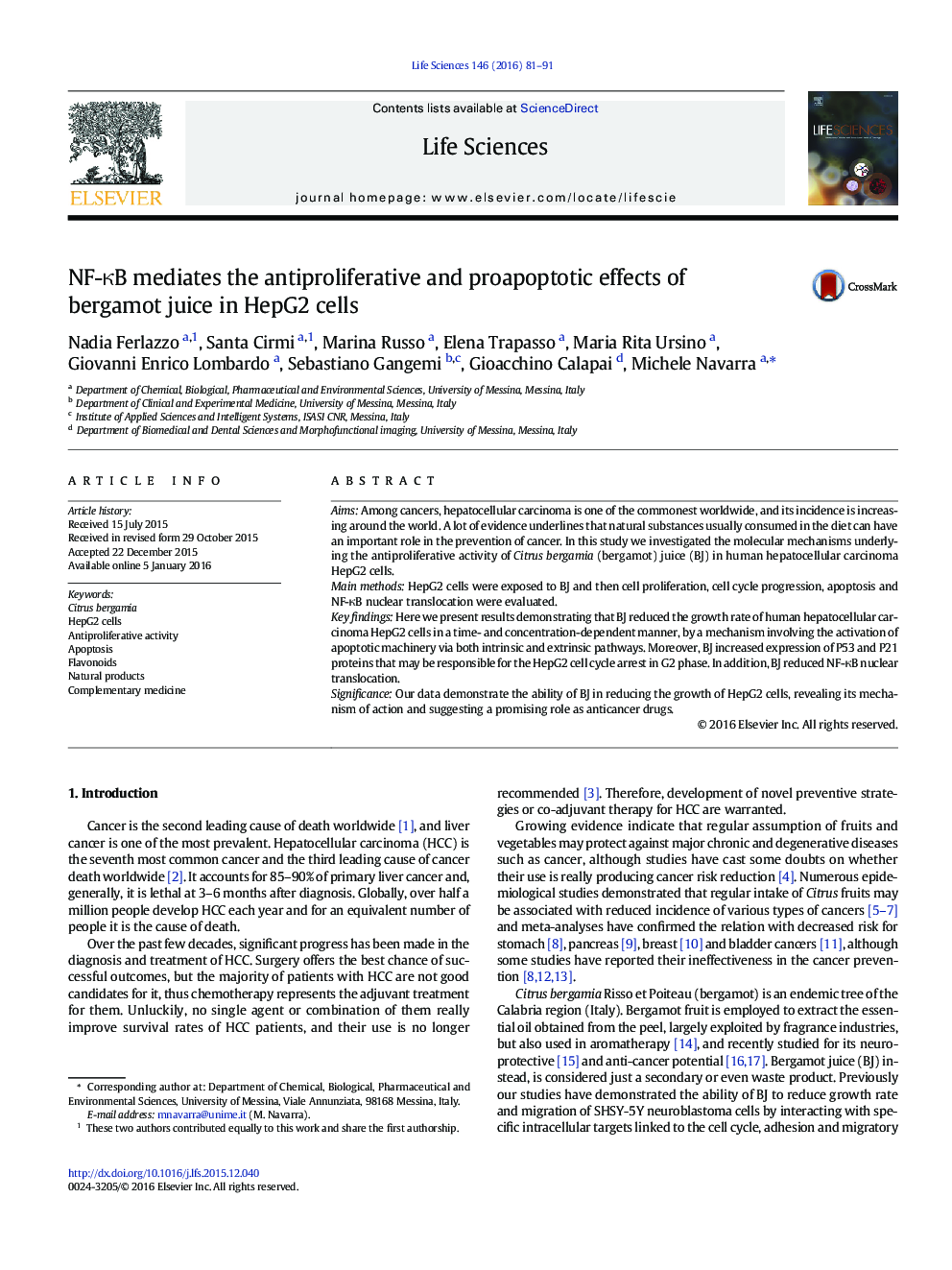| Article ID | Journal | Published Year | Pages | File Type |
|---|---|---|---|---|
| 2550670 | Life Sciences | 2016 | 11 Pages |
AimsAmong cancers, hepatocellular carcinoma is one of the commonest worldwide, and its incidence is increasing around the world. A lot of evidence underlines that natural substances usually consumed in the diet can have an important role in the prevention of cancer. In this study we investigated the molecular mechanisms underlying the antiproliferative activity of Citrus bergamia (bergamot) juice (BJ) in human hepatocellular carcinoma HepG2 cells.Main methodsHepG2 cells were exposed to BJ and then cell proliferation, cell cycle progression, apoptosis and NF-κB nuclear translocation were evaluated.Key findingsHere we present results demonstrating that BJ reduced the growth rate of human hepatocellular carcinoma HepG2 cells in a time- and concentration-dependent manner, by a mechanism involving the activation of apoptotic machinery via both intrinsic and extrinsic pathways. Moreover, BJ increased expression of P53 and P21 proteins that may be responsible for the HepG2 cell cycle arrest in G2 phase. In addition, BJ reduced NF-κB nuclear translocation.SignificanceOur data demonstrate the ability of BJ in reducing the growth of HepG2 cells, revealing its mechanism of action and suggesting a promising role as anticancer drugs.
